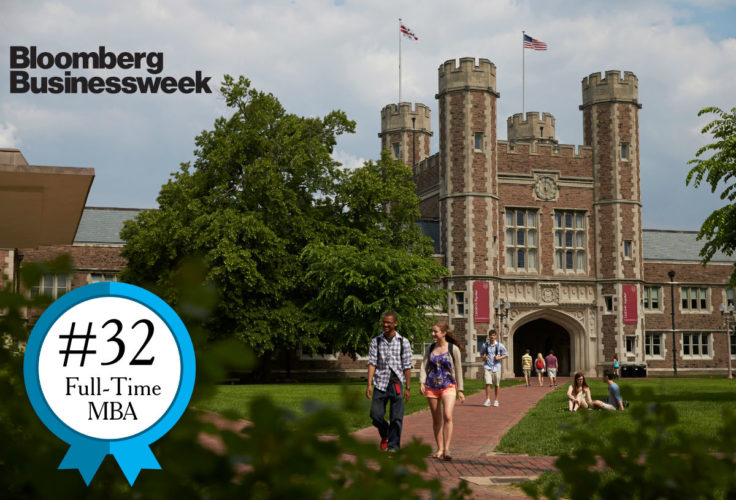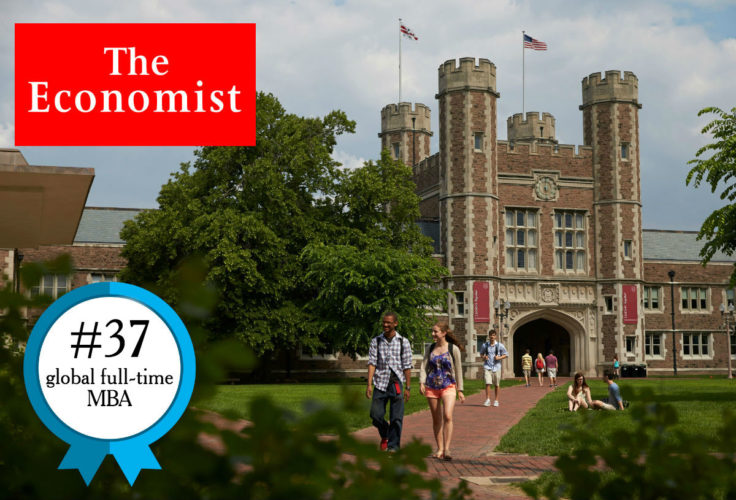The forward momentum continues for WashU Olin Business School with news that our full-time MBA program placed 32nd nationally in Bloomberg Businessweek’s new ranking—up four spots from 2017.
The ranking, released on Thursday, relied on new methodology from previous years and scored Olin highly among US business schools for post-graduate compensation among WashU MBA recipients.
“Olin’s mission focuses on producing and serving business leaders who will change the world—not on rankings,” said Dean Mark P. Taylor. “But when we see a series of rankings confirming our momentum at WashU Olin, we can be gratified that our work is being affirmed and recognized.”
Almost simultaneously, The Princeton Review released its annual ranking of business schools and placed WashU Olin’s full-time MBA in the top five in the country for resources for women. That further reinforced an earlier Financial Times ranking that placed Olin No. 4 globally for MBA programs for women.
These latest results join a series of other recent rankings of business programs around the country and the world, including:
- The Financial Times global MBA ranking in March, in which Olin jumped 18 places, landing in the world’s top 50.
- The FT’s global ranking of executive MBA programs last month, which placed our Shanghai Executive MBA sixth in the world—up one from the previous year.
- The Economist’s 2018 global ranking of MBA programs, also in October, placed Olin 37th in the world, up six places from the previous year.
- Poets & Quants’ undergraduate ranking in 2017, which placed in the top two in the nation along with Wharton.
- The TFE Times master of finance rankings placed Olin fourth in the US in 2018.








